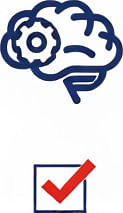Strategies for Managing Relationships with ADHD
 by Thaddeus Blanda
by Thaddeus Blanda
Living with ADHD can make relationships challenging, but simple techniques can help build stronger connections. This article explores practical ways to improve communication and organization in daily interactions, offering support for those facing these issues.

Many people with ADHD find that relationships require extra effort. Symptoms like difficulty concentrating or impulsivity can affect interactions with partners, friends, and family. The good news is that there are ways to handle this. By trying out certain approaches, you can create more stable and fulfilling connections.
First, consider how routine helps in relationships. Establishing daily habits, such as setting aside specific times for talks, can reduce stress. For example, scheduling a regular evening chat might make it easier to stay engaged. This method supports consistency without overwhelming you.
Communication is another key area. Often, people with ADHD might interrupt or lose track during conversations. To address this, practice active listening techniques. Pause before responding and repeat back what the other person said. This builds trust and shows you care, even on tough days.
When it comes to shared tasks, like household chores, clear planning is essential. Break down responsibilities into small, manageable steps. For instance, create a simple list for weekly duties and assign them clearly. Using apps or notes can aid in keeping things organized, promoting harmony at home.
It's also important to recognize your limits. Taking breaks during social events can prevent burnout. If you feel scattered, step away briefly to regroup. This self-care approach allows you to return refreshed, fostering balance in your relationships.
In work or family settings, tools like reminders can be helpful. Set alerts for important meetings or family dinners. This ensures you don't miss out, helping maintain reliability with loved ones.
Building a support network is vital too. Connect with others who have ADHD through groups or online forums. Sharing experiences can provide encouragement and new ideas for managing daily life.
Over time, these strategies can lead to positive changes. Remember, progress takes time, and it's okay to have setbacks. By focusing on your strengths, you can enjoy deeper connections and a more organized life.
Tips for Daily Practice
- Start with one new habit, like a daily check-in.
- Use timers for conversations to stay on track.
- Reflect on interactions to identify what works best.
- Seek feedback from trusted people to improve.
By incorporating these ideas, you can navigate life's challenges with greater ease and confidence.
